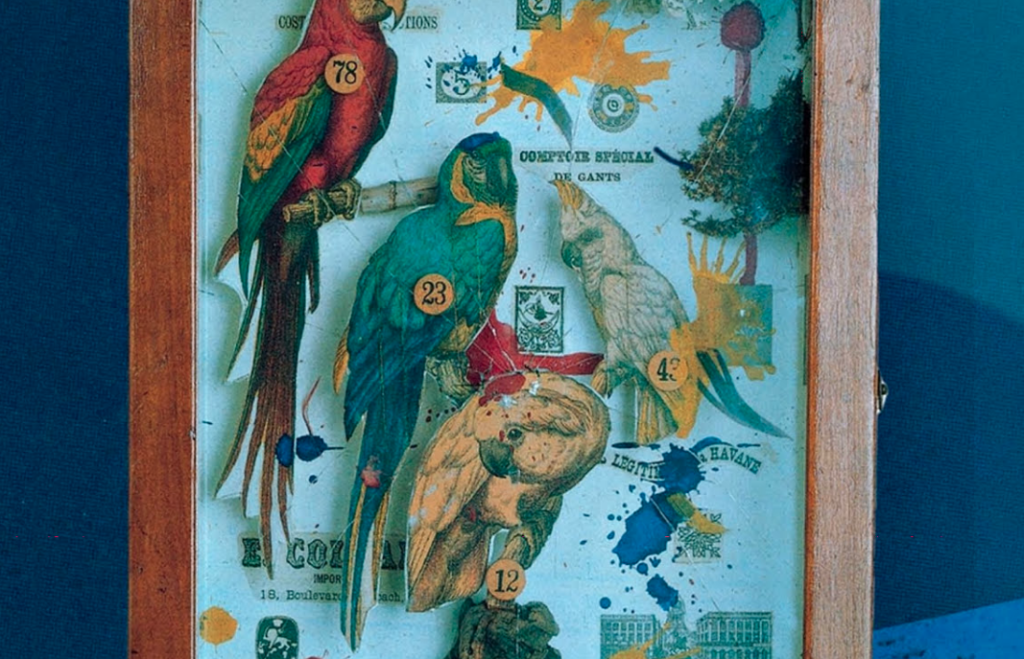Planets on Tables: Poetry, Still Life, and the Turning World
by Bonnie Costello
Cornell University Press, $29.95 (cloth)
Worrying over poetry’s relation to politics seems to be a pressing concern of our time—if not for politicians, then at least for poets and their critics. Much of the distress concerns poetry’s ability, or lack thereof, to press out from the private realm and enter the public sphere. What, wonder the poets and critics, can poetry make happen in the world? In Planets on Tables Bonnie Costello looks at these matters from the other end of the telescope. She examines how the lyric of still life, of the “aesthetic arrangement of domestic objects,” brings the distant world of public affairs into the private sphere. Joseph Cornell, the lone visual artist included among the poets Costello discusses, provides a model for this activity: when Cornell pasted a German-language map into one of his boxed assemblages in 1942, he was not just making an aesthetic decision—he was indicating the public, political background of his private, imaginative world. This familiarizing and domesticating of large public events is a serious business: it not only saves art from collapsing into the merely personal, it also shows that urgent public matters need not force us to abandon “the private realm . . . of individual feeling and creation.” Whether she is discussing Elizabeth Bishop’s “Questions of Travel,” (where wooden clogs are not just shoes, but a trace of Dutch colonialism), or examining Richard Wilbur’s early poetry (which can probe an object as simple as a potato for ethical and historical significance), Costello exhibits a fine eye for detail. Her chapters on Wallace Stevens and William Carlos Williams show vividly how the turbulence of their times entered even their most serene compositions. Throughout her incisive analysis, Costello’s lucid prose stands as a welcome sign that sophisticated criticism may be emerging from an age of jargon.








